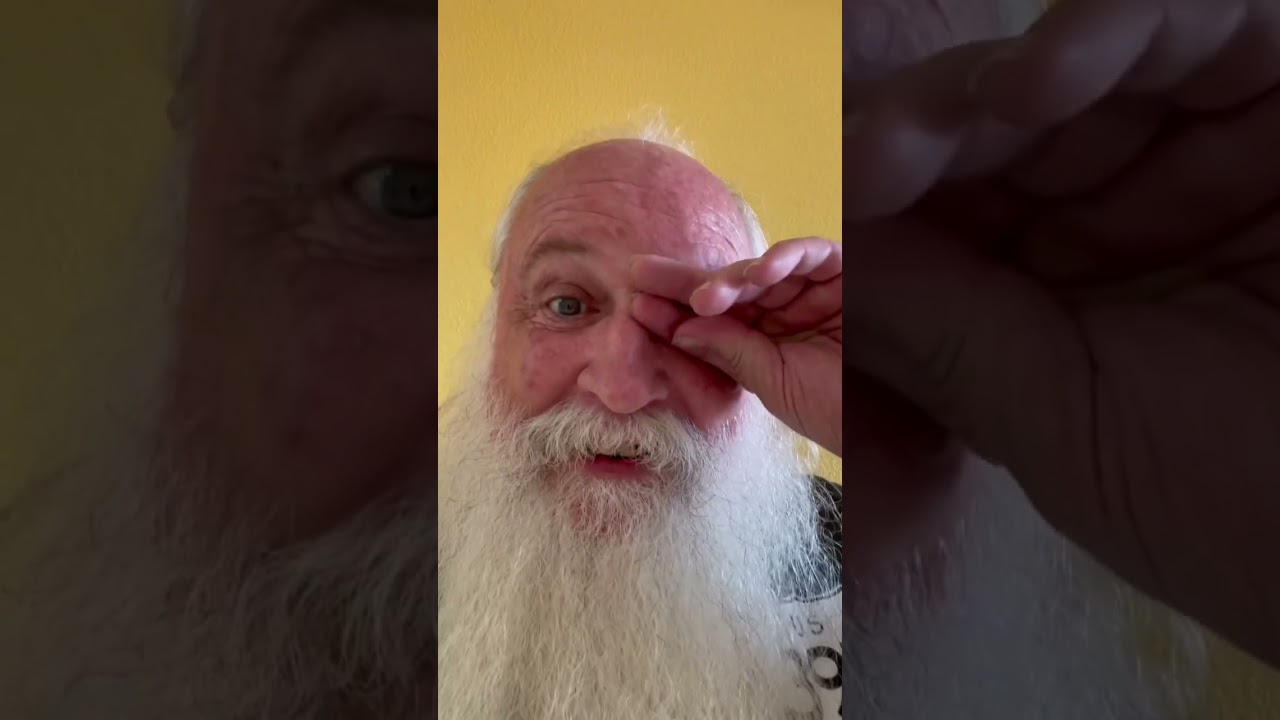It’s bout me, silly meno4
I invite incite you to tell the truth below the metaphor.
“Participation mystique’
The magic of nam yo ho renge kyo
William James, Husserl, Sartre, Jung, Hegel contra Marx, Wagner contra Nietzche, smarty pants contra ‘how are they to no, David contra Goliath,
Let us count the ways
But skip the means
Course it being the unanswered question
grrrrrrr
That is a complete sentence.
Sure thing
Oops maybe I hadn’t ’ev said that
Dweeb.
.
When dog, becomes glider… ![]()
.
…notice how he only takes one leap per hurdle, despite his much-smaller puppy stature.
Cognitive Phenomenology
Phenomenal states are mental states in which there is something that it is like for their subjects to be in; they are states with a phenomenology. What it is like to be in a mental state is that state´s phenomenal character. There is general agreement among philosophers of mind that the category of mental states includes at least some sensory states. For example, there is something that it is like to taste chocolate, to smell coffee, to feel the wind in one´s hair, to see the blue sky and to feel a pain in one´s toe. Is there also something that it is like to consciously think, to consciously judge and to consciously believe something? Are such cognitive states, when conscious, phenomenal states? Is there a clear distinction between sensory states and cognitive states? Or, can our knowledge, thoughts and beliefs influence our sensory experiences? Is there a cognitive phenomenology?
It is challenging to give a clear characterization of the cognitive phenomenology debate, since different contributors conceive of the debate in different ways. Central for the debate is the question of whether conscious thoughts possess a non-sensory phenomenology. Intuitively, there is something that it is like to consciously think, consciously judge and consciously believe something. However, the debate about cognitive phenomenology is not, strictly speaking, about whether there is something that it is like to consciously think. Rather, the debate concerns the nature of cognitive phenomenology. Is the phenomenology of cognitive states reducible to purely sensory phenomenology? Or, is there an irreducible cognitive phenomenology? A sceptic about cognitive phenomenology claims that conscious cognitive states are non-phenomenal. But, conscious cognitive states may seem to be phenomenal because they are accompanied by sensory states. For instance, when one thinks that ´Paris is a beautiful city`, one´s thought may be expressed in inner-speech and an image of Paris may accompany it. These accompanying sensory states are phenomenal states, and not the thought itself. Contrary to this, the proponent of cognitive phenomenology claims that a conscious cognitive state can have a phenomenology that is irreducible to purely sensory phenomenology.
Other debates have also been placed under the ´cognitive phenomenology’ label. There is an ongoing debate within the philosophy of perception about how cognition influences our sensory experiences. Philosophers tend to agree that, for example, an expert ornithologist´s perceptual experience of a type of bird can differ from that of a novice, even if the viewing conditions for both expert and novice are the same. The expert´s knowledge of birds can influence her experience. However, what philosophers disagree about is how the expert´s knowledge influences her experience, and how her knowledge contributes to what her experience is like.
Table of Contents
- Background
- Terminological Clarifications
- Two Kinds of Mental States
- Phenomenal Intentionality
- The Nature of Cognitive Phenomenology
- Irreducible Cognitive Phenomenology
- Proprietary Cognitive Phenomenology
- Pure and Impure Cognitive Phenomenology
- Attitudinal Phenomenology and Content Phenomenology
- General, Particular and Individuative Cognitive Phenomenology
- Arguments for Cognitive Phenomenology
- Arguments from Examples
- Contrast Arguments
- The Self-Knowledge Argument
- An Argument for Pure Cognitive Phenomenology
- Individual Differences
- Implications of the Cognitive Phenomenology Debate
- References and Further Reading
1. Background
a. Terminological Clarifications
When this article talks about a state being conscious, being conscious should be understood as being phenomenally conscious. A phenomenal state is a mental state that is phenomenally conscious in that there is something that it is like for the subject of that state to be in that state. Phenomenal states are states with phenomenology. What it is like to be in a phenomenal state is that state´s phenomenal character. An example of a phenomenal state is a visual experience of the blueness of the sea. Another example is an auditory experience of the sound of waves. There is something that it is like to have these experiences. There is also something that it is like to simultaneously visually experiencing the blueness of the sea and auditorily experiencing the sound of the waves (Bayne & Chalmers 2003). Our everyday conscious experiences are often complex in that they involve simultaneously thinking, feeling and experiencing within different sensory modalities. Such a complex experience is referred to as an overall phenomenal state.
Examples of sensory mental states are perceptual states, proprioception, bodily feelings and pains. Examples of cognitive states are thoughts, judgments and beliefs. According to some views, emotions and categorical perceptual experiences (such as experiencing something as being a type of bird) should also be categorized as cognitive states, or as partly cognitive and partly sensory states (see Chudnoff 2015a, Montague 2017).
b. Two Kinds of Mental States
Traditionally, it was common to distinguish between two kinds of mental states, namely sensory states and propositional attitudes. Paradigmatic examples of propositional attitudes are cognitive states such as beliefs, desires, thoughts and judgements. Propositional attitudes are intentional states since they are about or represent objects, properties or states of affair. They are states with propositional contents that can be linguistically expressed by using a ´that-clause. The content of my belief ´that it will rain tomorrow is ´that it will rain tomorrow. When I believe ´that it will rain tomorrow I am having a certain attitude towards that content, namely the attitude of belief. I could have had a different attitude towards the same content, I could for instance desire ´that it will rain tomorrow`.
According to the traditional view, sensory mental states, unlike cognitive states, have qualia. On this view, qualia are seen as phenomenal properties that can be separated from intentional or representational properties. For example, my visual experience of a red rose in front of me is intentional in that it is about or represents ´that there is a red rose in front of me`, but it is also something that it is like for me to experience the red rose. The redness that I experience is a property of my experience, a quale. While conscious sensory states are regarded as phenomenal states with qualia, conscious cognitive states are said to lack qualia. They are seen as non-phenomenal states.
Lately, this traditional view has been challenged. Firstly, proponents of intentionalism argue that when I experience a red rose I experience the redness as a property of the rose itself, and not as a property of my experience of the rose. My experience of the red rose has a phenomenal character, but this phenomenal character is embedded in the intentional content of my experience. Secondly, proponents of cognitive phenomenology challenge the assumption that cognitive states are non-phenomenal states when conscious.
c. Phenomenal Intentionality
In their seminal paper from 2002 ‘The Intentionality of Phenomenology and the Phenomenology of Intentionality’, Horgan and Tienson argue against the traditional view and argue in favour of intentionalism and cognitive phenomenology. They also argue for a view about the relation between the intentional and the phenomenal that has recently gained popularity, Phenomenal intentionalism.
According to intentionalism, all mental states are intentional, including phenomenal states. A mental state is commonly regarded as intentional if it is about or directed towards some objects or states of affairs, and if it has a content.
Phenomenal intentionality is a kind of intentionality that is said to be grounded in phenomenal consciousness (Kriegel 2011, Mendelovici 2018). According to proponents of Phenomenal intentionalism, there is a Phenomenal intentionalityand all other forms of intentionality are derived from Phenomenal intentionality. While other proponents of intentionalism hold that intentionality is primary to phenomenology (see for example, Tye 1995 and Dretske 1995), proponents of Phenomenal intentionalism claim that phenomenology or Phenomenal intentionality is primary to all other forms of intentionality (Horgan & Tienson 2002, Kriegel 2011, Mendelovici 2018).
While most proponents of Phenomenal intentionalism also claim that there is a cognitive phenomenology, the two views should not be intermingled. Phenomenal intentionalism is a view about what it is that grounds the relation between phenomenal consciousness and intentionality, while cognitive phenomenology is a view about the scope of phenomenal consciousness. A proponent of cognitive phenomenology needs not accept Phenomenal intentionalism, and it is not necessary for a proponent of Phenomenal intentionalism to hold that there is a cognitive phenomenology. However, since proponents of Phenomenal intentionalism claim that all intentionality is derived from Phenomenal intentionality, it is easier to explain the intentionality of cognitive states if one holds that conscious cognitive states are phenomenal states. If one denies that there is a cognitive phenomenology and accepts Phenomenal intentionalism, one needs to tell a story about how the intentionality of cognitive states is derived from the Phenomenal intentionality of sensory states. While if one holds that there is a cognitive phenomenology one can simply claim that the intentionality of non-conscious cognitive states (such as dispositional beliefs) is derived from the Phenomenal intentionality of conscious cognitive states.
2. The Nature of Cognitive Phenomenology
The debate about whether or not there is a cognitive phenomenology can seem bewildering since there are different claims about what cognitive phenomenology is, and these claims may vary in both strength and generality.
a. Irreducible Cognitive Phenomenology
According to Elijah Chudnoff (2015a), a proponent of cognitive phenomenology should minimally accept the irreducibility thesis.
Irreducibility: ‘Some cognitive states put one in phenomenal states for which no wholly sensory states suffices’ (Chudnoff 2015a: 15).
It follows from Irreducibility that some cognitive states are such that because one is in them one is in a phenomenal state for which no wholly sensory states suffice. That is, there is a phenomenal character that is over and above the phenomenal character that accrues for sensory states. Putting one in a phenomenal state should be understood as a non-causal explanatory relation that can alternatively be picked out by ´in virtue of or ´constitutively dependent on (see Chudnoff 2015b).
In order to get a better grip on the Irreducibility thesis we can contrast it with an alternative view on the relation between cognitive states and phenomenal states. It is uncontroversial to claim that cognitive states can make an impact on our sensory states. For instance, judging that the sum of the angles of a triangle is 180 degrees can lead one to visualize the triangle or to express sentences such as ´the sum of the angles of a triangle is 180 degrees in inner speech. In this case, one is in a phenomenal state since one is in a certain cognitive state, but the phenomenal state one is in is not different from the phenomenal state various wholly sensory states can put one in (Chudnoff 2015a). What *Irreducibility* claims is that some cognitive states can put one in phenomenal states that are different from those phenomenal states that wholly sensory states can put one in. Chudnoff uses an example from mathematics to illustrate how *Irreducibility* differs from the view that cognitive states merely cause one to be in a certain phenomenal state. At first you read that ´If a < 1, then 2 – 2a > 0, and you wonder whether this is true (Chudnoff 2015a: 15). Then you realise how a´s being less than 1 makes 2a smaller than 2 and so 2 – 2a greater than 0. When you realise the truth of this mathematical proposition you might say to yourself in inner speech ´If a < 1, then 2 – 2a > 0 and you might visualize the variable ´a and the numeral ´1. You might also feel satisfied because you got it right. These states that you are put in are all sensory phenomenal states. However, if you believe *Irreducibility* and if you think that this case of realising the truth of this mathematical proposition involves cognitive phenomenology, then you also believe that these sensory states taken together cannot account for the overall phenomenal state you are in. You think that there is some phenomenal state that is left over which only the cognitive states of ´realising or ´intuiting` can put you in.
Following Chudoff, Irreducibility is the thesis that a proponent of cognitive phenomenology must minimally accept. There are other theses figuring within the cognitive phenomenology debate that go beyond Irreducibility and make stronger and more specific claims about the nature of cognitive phenomenology.
b. Proprietary Cognitive Phenomenology
According to Irreducibility, some sensory states put one in phenomenal states for which no wholly sensory states suffice to put one in. However, it does not follow from Irreducibility that only cognitive states put one in these phenomenal states. Neither does it follow from Irreducibility that the phenomenal character of the phenomenal states that cognitive states put one in is cognitively grounded. That is, that their phenomenal character is different in kind from sensory phenomenal character (Levine 2011).
Many proponents of cognitive phenomenology hold that there is a proprietary cognitive phenomenology (See Horgan & Tienson 2002, Horgan 2011, Kriegel 2011, Kriegel 2015a, Kriegel 2015b, Pitt 2004, Pitt 2011, Siewert 1998, Siewert 2011). The kind of phenomenology that philosophers are talking about when they are talking about cognitive phenomenology must differ in kind form the kind of phenomenology one is familiar with through one´s sensory experiences. As David Pitt puts it:
I believe that the phenomenology of occurrent conscious thought is proprietary: It´s a sui generis sort of phenomenology, as unlike, say, auditory or visual phenomenology as they are unlike each other—a cognitivephenomenology. (Pitt 2011: 141)
There is something that it is like to be in a conscious cognitive state and/or to consciously entertain a cognitive content, and this phenomenology is distinct from the phenomenology one experiences when one is consciously perceiving something or feeling something. Cognitive phenomenology is, on this view, proprietary and sui generis.
Proprietary: Conscious cognitive states have proprietary or sui generis phenomenal character.
Someone who accepts Proprietary also accepts Irreducibility, but one may accept Irreducibility and deny Proprietary. For example, one could claim that knowing a lot about sparrows may influence the way one visually experiences sparrows so that one can be put in phenomenal states for which no wholly sensory states suffice. One´s knowledge does not merely cause one to attend to sparrows in a particular way. Rather, one´s knowledge puts one in a phenomenal state that one could not have been put in by wholly sensory states. In such a case, cognitive states can make a constitutive contribution to one´s perceptual experience by, for example, structuring the experience, without thereby producing a phenomenal state that is non-sensory in kind (see Levine 2011, Nes 2011). However, most philosophers hold that cognitive states can cause one to be in certain sensory states by influencing attention. Carruthers and Veillet (2011) argue that it is not clear that the sparrow expert´s experience involves irreducible cognitive phenomenology, since it is possible that her knowledge simply causes her to attend to sparrows in a different way compared with a novice. She will notice certain properties of the sparrows that the novice fails to notice, but the phenomenal state she is in is a state that wholly sensory states suffice to put her in. How should we decide between these views?
If cognitive phenomenology is proprietary, it should in principle also be possible to pick it out via introspection. Holding that cognitive phenomenology is proprietary allows one to appeal to introspection in cases where there is a dispute about whether cognitive phenomenology is involved or not. This may serve as a motivation for holding that cognitive phenomenology is proprietary, and not merely irreducible.
c. Pure and Impure Cognitive Phenomenology
We can further distinguish between three different ways of characterizing the nature of a phenomenal state: 1) A phenomenal state is purely sensory in case wholly sensory states suffice to put one in that state; 2) A phenomenal state can be partly cognitive (and partly sensory) if no wholly sensory states suffice to put one in that state and no wholly cognitive states suffice to put one in that state; 3) A phenomenal state is purely cognitive in case cognitive states suffice to put one in that state (Chudnoff 2015b). A cognitive phenomenal state is an impure cognitive phenomenal state if 2 holds but not 3. A cognitive phenomenal state is a pure cognitive phenomenal state if 3 holds. In other words, a cognitive phenomenal state is a pure cognitive phenomenal state if it is independent of sensory states.
A proponent of cognitive phenomenology needs not accept that there is pure cognitive phenomenology. It is compatible with Irreducibility that there is merely impure cognitive phenomenology. Many of the cases that are commonly appealed to in arguments for cognitive phenomenology seem to involve impure cognitive phenomenology. For instance, the overall phenomenal state one is in when one suddenly grasps a mathematical proposition arguably depends on both sensory experiences and intuiting. Proposed candidates for pure cognitive phenomenology are imageless thoughts and beliefs.
It is compatible with Irreducibility to deny that there is pure cognitive phenomenology. However, if one holds Proprietary one seems committed to accept that pure cognitive phenomenology is, at least, possible. Following Proprietary, cognitive phenomenology is different in kind from other kinds of phenomenology, and it should in principle be possible to pick out this kind of phenomenology via introspection. When one is in a phenomenal state that involves different sensory modalities—such as the state one is in when watching a TV-show—one seems able, at least roughly, to pick out and separate visual phenomenology from auditory phenomenology. This is because visual phenomenology is quite unlike auditory phenomenology. Similarly, when one is consciously thinking that p, one should be able to separate the phenomenology of thinking from the auditory phenomenology involved when expressing the content in inner-speech. On this view, cognitive phenomenology is a sui generis kind of phenomenology, as unlike auditory and visual phenomenology as they are unlike each other (Pitt 2004, Pitt 2011).
d. Attitudinal Phenomenology and Content Phenomenology
Cognitive states such as thoughts, beliefs, judgements and inferences are propositional attitudes. One may think that conscious cognitive states have attitudinal cognitive phenomenology PA:
PA: There is something that it is like to have a conscious cognitive attitude towards a content, and no wholly sensory states suffice to put one in a state with this phenomenal character.
PA is compatible with Irreducibility and Proprietary.
The claim that there is a cognitive phenomenology can also be a claim about the cognitive content that one is consciously entertaining when one is in a cognitive state. One may think that conscious cognitive states have content cognitive phenomenology CA:
CA: There is something that it is like to consciously entertain a cognitive content, and no wholly sensory states suffice to put one in a state with this phenomenal character.
A proponent of cognitive phenomenology can accept that there is an attitudinal cognitive phenomenology and deny that there is a content cognitive phenomenology. One can also hold that there is a content cognitive phenomenology, but not an attitudinal cognitive phenomenology. Or, one can accept that there is both an attitudinal cognitive phenomenology and a content cognitive phenomenology.
e. General, Particular and Individuative Cognitive Phenomenology
Cognitive phenomenology claims can be general claims such as the claim that conscious cognitive attitudes have attitudinal cognitive phenomenology, where this attitudinal cognitive phenomenology is common for all cognitive attitudes. Alternatively, cognitive phenomenology claims can be claims about there being a particular cognitive phenomenology involved when one is consciously believing, and this attitudinal cognitive phenomenology is different from the attitudinal cognitive phenomenology involved when one is having other conscious cognitive attitudes. One may also think of attitudinal cognitive phenomenology as even more fine-grained: for example, that there are different attitudinal cognitive phenomenologies involved in having different kinds of conscious beliefs.
The claim that there is a content phenomenology can be more or less general. The most general claim is that there is a content cognitive phenomenology that is common for all cognitive contents. A more particular view claims that the cognitive content phenomenology involved in consciously entertaining the content that p, say, differs from the cognitive content phenomenology involved in consciously entertaining that q. An even more particular view holds that the content cognitive phenomenology involved in consciously entertaining the content that p is different from the content phenomenology involved in consciously entertaining any other cognitive contents. Further, one could hold that the phenomenology involved in consciously entertaining the cognitive content that p may differ from person to person. For example, the content phenomenology involved when John consciously entertains the cognitive content that p, differs from the content phenomenology involved when Jane consciously entertains the cognitive content that p.
Particular claims about either attitudinal cognitive phenomenology and content cognitive phenomenology are often motivated by the view that phenomenology is individuative. That is, in virtue of having the phenomenal character it has, my belief is a belief as opposed to a judgment, a thought or an intuition. And, in virtue of having the phenomenal character it has, the content that I am entertaining, the content that p, is the very content that p as opposed to the content that q. By claiming that phenomenology is individuative one can elegantly explain how one can determine the content of one´s own phenomenal state. One knows which phenomenal state one is in, and its content, because it has the phenomenal character that it has. For instance, when I am having a visual experience of a red rose I come to know—via introspection—that I am having a visual experience of a red rose. Similarly, I come to know that I am consciously believing that p due to the phenomenal character belief that p has (Pitt, 2004, Horgan 2011, Kriegel 2011, Kriegel 2013).
3. Arguments for Cognitive Phenomenology
We can distinguish between different types of arguments for cognitive phenomenology. These arguments are generally arguments for Irreducibility, but some of them also defend stronger claims about the nature of cognitive phenomenology. This section presents the types of arguments that are most commonly used and common responses to them.
a. Arguments from Examples
Arguments from examples appeal to cases or circumstances where one seems to be in phenomenal states that involve cognitive phenomenology. For instance, there is something that it is like for me to suddenly remember that I have an appointment with a student in 5 minutes. The state that I am in when I suddenly remember something is a cognitive state. There can be sensory states involved as well; a visual image of my student may pop-up, or I may feel annoyed because I almost forgot about the appointment. The cognitive state I am in when I suddenly remember my appointment puts me in a phenomenal state, and no wholly sensory states suffice to put me in that state.
Another argument from example appeals to tip-of-the-tongue experiences, the kind of experiences one has when searching for a word that one knows but fails to retrieve (Goldman 1993). There is something that it Is like to have such experiences, and cognitive states play a role in putting one in that state, and no wholly sensory states suffice to put one in that state.
A sceptic about cognitive phenomenology may agree with the proponent of cognitive phenomenology in that the states that these arguments appeal to are phenomenal states, while denying that they are cognitive phenomenal states. According to the sceptic there is always some sensory states involved when one suddenly remembers something. When I remember that I have an appointment with my student in 5 minutes, I may visualize my student and feel annoyed by myself for almost forgetting about the appointment. The sensory states that I am in can, according to the sceptic, fully account for the phenomenal character of the state that I am in.
One can make a similar response to the tip-of-the-tongue example. When having a tip-of-the-tongue experience I am making an effort to retrieve a word, and it is the sensory feeling of making an effort that accounts for the phenomenal character of the experience.
A proponent of cognitive phenomenology can insist that if one carefully introspects one´s phenomenal states, it becomes apparent to one that these states involve cognitive phenomenology. However, such appeals to introspection are problematic because a sceptic may simply claim that she is carefully introspecting the phenomenal state she is in when she suddenly remembers something, but she finds only sensory phenomenology. Nevertheless, it seems wrong to completely dismiss appeals to introspection, as some such appeals appear more convincing than others. Charles Siewert (1999) argues that the sensory states involved in cases where one suddenly remembers something occur after the state of suddenly remembering. The state that one is in when suddenly remembering something needs not involve any sensory phenomenology at all. Following Siewert, the state of suddenly remembering is a pure cognitive phenomenal state (Siewert 1999).
b. Contrast Arguments
One of the most commonly used type of argument for cognitive phenomenology is contrast arguments. Contrast arguments for cognitive phenomenology appeal to two contrasting phenomenal states, s1 and s2, where there appears to be a difference in the phenomenal character of s1 and s2, and where this difference is best explained as a difference in cognitive phenomenology. Contrast arguments can be used when arguing for attitudinal cognitive phenomenology, content cognitive phenomenology, pure and impure cognitive phenomenology. The expert/novice argument that is introduced earlier in this article can be seen as a contrast argument.
When contrast arguments are used as argument for attitudinal cognitive phenomenology one typically appeals to cases where there is a slight change in one´s attitude towards a content. An example is the change of attitude one experiences when one suddenly grasps a mathematical proof. There is something that it is like to grasp a mathematical proof, and the state one is in when one suddenly grasps it differs from the state one was in before grasping it.
When contrast arguments are used as arguments for content phenomenology one typically appeals to a pair of situations where one is attending to the meaning of an ambiguous utterance in natural language, and where there appears to be a phenomenal difference in the states one is in depending on which proposition one takes the utterance to express (Horgan & Tienson 2002).
Contrast arguments can be more or less convincing, depending on how easy it is to give an alternative explanation of the contrast, and on whether the claim that there is a contrast is convincing.
´The foreign language argument’, due to Galen Strawson (1994), is maybe the most famous contrast argument for cognitive phenomenology: Jack is a native English speaker who does not understand French, while Jacques is a native French speaker. Both Jack and Jacques hear the same instance of the utterance ´La vie est belle. There is something that it is like for both Jack and Jacques to hear the utterance, though what it is like for Jacques differs from what it is like for Jack. So, Jack and Jacques are put in different phenomenal states. The difference in the phenomenal character of their states can be explained by the fact that Jacques, unlike Jack, understands what is being said. Jacques, unlike Jack, has an attitude of understanding towards the content, and he is able to consciously entertain the content that is being expressed. In the case of Jacques, unlike Jack, cognitive states of understanding and entertaining a content put him in a phenomenal state, and this explains why the phenomenal state he is in differs from the phenomenal state Jack is in. In order to make the foreign language argument into an argument for cognitive phenomenology one needs to add that the phenomenal difference between Jacks and Jacques` states is a difference
…
…,
.study preparation for preceptional problems, avoidance issues on the autistic continuum from animal to dog ; of an analogical to digital plasticism.
Including social to individual ly reduced criteria that may tie such continuum together from a linear to a geometric/trigonometric perceptive mode.
Further, to enrich such overly ambitious project, with hyper realistic symbolic content as in the significance of the ‘ring’ as a limit to such practical
MagsJ ,interesting correlation between different aspects that time and space determines the small dog’s realization of successive states of consciousness
Research shows that like some humans, dogs are face blind, but cats are not.
…a chic geek -all thoughts are my own-MagsJ
When dog, becomes glider…
.
…notice how he only takes one leap per hurdle, despite his much-smaller puppy stature.
His mind/body connection is absolutely phenomenal, of which I think thisv TikTok showcases better than the previous…
…the physical, being fine-tuned and enabled, by the mental…
.
…my cat is way to cool to ever get jealous, but dogs and other animals… yea sure they do.
The/a [jealous] rabbit was a big surprise, and the bird at the end of the video singing for his supper and his keep was quite something. ![]()
.
The harrowing tale of the albino bear, due to unnecessary human-intervention…
.
”…even the babies are one of the most dangerous animals in the world, so I built this cage to keep him secure so there’s no possible… oh my gawd!”
![]()
.
Cats thinking phenomenally…
Why didn’t God just make robots so we all be nice to each other? He did —they’re called dog programs. He thought maybe being nice to each other on purpose would add some flavor.
Someone may object about dogs that were used as fighting dogs and they are no longer nice. That’s the difference between us and dogs. We can reframe (control the narrative, variate on a theme). Dogs can’t. They have one theme.
…
Thought the question ‘can dogs think phenominally be correlated to ‘how is a revolutionary deontological correlation possible without a cynical overview, in the guise of interspecie friendship?
Or, something along those lines.
Did such ‘friendship’ even exist in Ancient Greece?
According to Wiki, in cases of troubled interpersonal relations, dogs were used as substitutes in Ancient Greece. Guess nothing new there.
My dog is very smart and even understands physics. I asked her if she knows about Relativity Theory and she barked. I said does that mean no, she didn’t do anything. I said does it mean yes, she barked again. I said what is Relativity Theory? She barked once, then paused for a few seconds, then barked again.
See that? One bark relative to the other. Amazing how smart dogs are.
So yes, dogs can think phenomenally.









